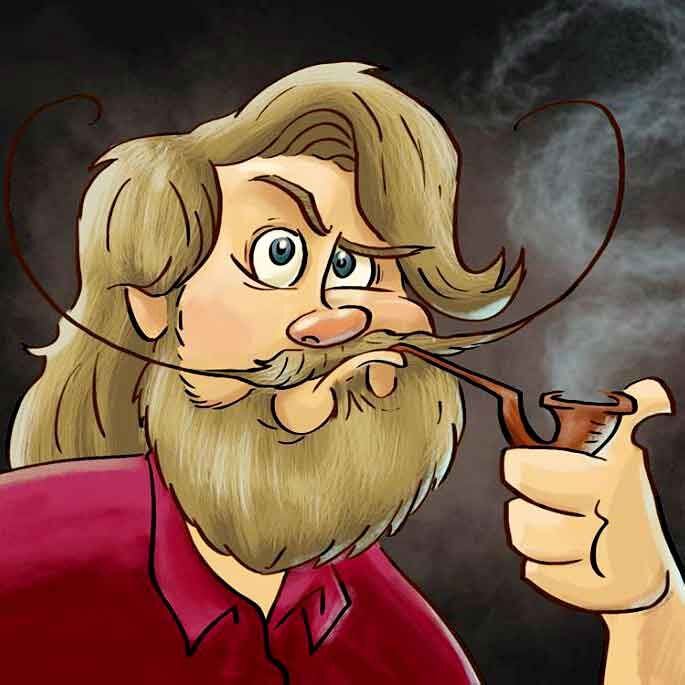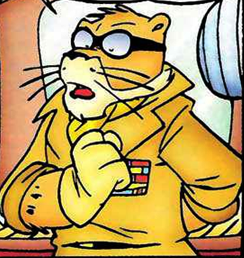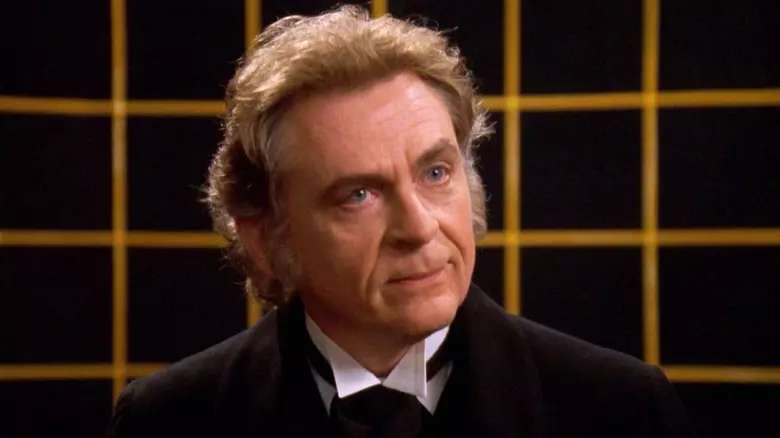Hey mateys!
I made a post at /c/libertarianism about the abolition of IP. Maybe some of you will find it interesting.
Please answer in the other community so that all the knowledge is in one place and easier to discover.
I’m not opposed to intellectual property because there’s an argument for providing a limited time monopoly to the creators of works to provide incentive to make works public. Without any such incentive, it’s entirely possible that the monetization structures for different works change, for example locking content behind restrictive systems that don’t allow for personal use at all.
The key is “limited time”. If you can’t make your money back in 15 years, then maybe it’s time to make a new thing? The idea that someone should own a thing you made after you’re dead is stupid – how exactly will that promote you to create new works? If you’re dead, your creating days are over except for creating plant food out of your bones and organs.
I put my money where my mouth is, and the legal page of the graysonian ethic specifically lists that the book is put into the public domain or license after Creative Commons CC0 license after 15 years from the date of first publishing.
Other than liking the nice round number of 20 years, that’s exactly my take. Copyright longevity creates perverse incentives for rights holders, and it locks down the ability of other creators to use common cultural references.
I’d say no more than 10 years for ANYTHING. Copyright, patent, you name it. I would also prohibit any and all software and design patents.
Trademark would last only as long as actively in use.
These changes alone (without other major reforms) would be particularly catastrophic in sectors that require large investment over a long period of time. For example, pharmaceuticals typically cost billions and take 10-15 years to develop.
Billions typically paid for by government subsidy, id est taxpayers. I’m not sure what the justification is for private IP rights when the capital is socialized.
i so seldom see anyone actually write out ‘id est’ instead of ‘i.e,’ that part of my brain insisted for a solid second that it had to be a typo lol
It’s part of how I remember id est versus exempli gratia
Pharmaceuticals is about the worst example you could pick to make a point. It’s notorious for socializing the cost and privatizing the profit (not to mention the ethics of price gouging life saving medication treatments).
Here’s what Johnson&Johnson is doing right now with a TB drug whose development was paid largely with public funding:
The pill, called bedaquiline, was first approved in 2012 as the first new TB drug in over 40 years and revolutionized treatment for drug-resistant infections. But its relatively high cost limited access in many low- and middle-income countries hit hardest by an epidemic that still kills around 1.5 million people every year, most of them among the world’s poorest. The company initially charged $900 per course in low-income countries, according to a 2016 report, but gradually lowered it to $340 three years ago.
The secondary patent particularly irked some advocates because the drug’s development was largely underwritten by public funds, according to a 2020 analysis. That study found public sector funds contributed $455 million to $747 million to getting bedaquiline to market, compared to $90 million to $240 million from J&J.
The pharmaceutical companies would definitely not cut back on their profits, so at “best” they would either get public money to make it several times faster, or they would cut back on quality and safety (*lobbies have entered the chat); and in either case the final price would be higher.
There is plenty of room to get worse, even in the current favorable conditions they prioritize known cost-effective palliative treatments over research into expensive solutions that may lead to nothing.If the entire health sector were public and concerned itself with saving lives instead of making money, it would be a different story, but that is where we get into major reforms.
I don’t think you realize how incredibly short 10 years is in terms of investment recuperation. That’s not realistic unless you’re talking about abandoning capitalism all together, at which point the particulars of IP law are irrelevant
I agree with you both, although imho 15/20 is a bit too long? The only reason being something can be improved better(?) by multiple entities working on it (competitively) than a single entity. Maybe 10 years? I’m thinking if I have an invention (let’s say a new engine), 10 years should be enough for me to earn my share. After that, other companies/individuals can use my base/foundation and build on it. With more people working on that engine and competing with each other, the end product would probably be much better than when I work at it alone.
So if i’m a writer writing a series over a decade, my first book, which only got me a 10k advance, will stop giving me even a pittance in royalties a decade later even as I am adding new books to the series? Most creatives are not rich household names, and your idea would not be a death knell for Disney, but for the small creators already earning poverty wages.
Valid point (and one I initially did not consider). But I still stand by what I said, although I admit it can be more flexible if you’re contractually bound to write a series. Maybe a few years’ worth of extensions per entry or it starts after a series is over? Certainly not 70 years after an author’s death. We know books depend on popularity to sell, and we’ve seen only a few (relatively) authors get rich on their books alone.
10 years is a long time - I would not stay in a job that doesn’t pay enough for my needs for 10 years no matter how much I enjoy it. My problem is I admittedly am not well-versed in that specific industry (trusted resources are welcome as I’ve tried searching but I don’t recognize many of the websites so idk how reliable they are). But an increase in salary (or advances) and/or royalties may be in order. I think everyone is entitled to that at this point.
Again, this is from my admittedly limited knowledge in that specific industry, so feel free to correct me. It’s just that imho IP rights, as they are today, is kind of ludicrous.
Copyright is life of the Author +70 years, patent is 20 years from filing.
Damn that mouse, I’d even be fine with life of the author in theory. But life of the author +70 freaking years is ridiculous.
People would take out hits on people to free an IP, if it is particularly valuable. So lets not bind it to an authors life at all.
I was talking about what copyright should be.
The problem is noted by Karl Marx, the capitalist inevitably captures the government and its regulating departments so that the body of laws will be revised in their favor. Remember that the point of copyright laws in the Constitution of the United States, to promote science and the useful arts was killed when IP was extended. Every year that someone owns an idea is year that the rest of us does not.
I don’t know the solution, but corruption of the temporary monopoly was inevitable.
Power captures power. Money is a form of power, but there are many forms and the powerful tend to try to grab more power no matter the situation.
This only works if you abolish capitalism as well so people don’t need to revenue of IP.
Now you’re talking
I disagree that trademark should be abolished, but agree that copyright is made so rich can hoard their money without worry, because others can’t copy their ideas.
Trademark is: Your distinguished name, brand, logo, etc so you can be distinguished and can be recognized. A copyright is a type of intellectual property that gives its owner the exclusive right to copy, distribute, adapt, display, and perform a creative work, usually for a limited time.[
If there was no intellectual property, what would prevent a company like Amazon to simply sell any work every published in their best monopoly marketplace without ever giving a cent to the creators? How would, for instance, the author if a novel make money?
Donations and crowdfunds are the most common suggestions.
Or to come at it from another angle - 38% of the USA’s GDP comes from IP, and its primary beneficiaries are wealthy. If we paid towards a UBI instead of copyright holders, then many people would just make these things for free, with total creative freedom. The messages in our art and direction of our technology would radically change.
Canada had a system where we charged a levy on things like blank media, then distributed that levy to right holders. I don’t think it was a very good system, but maybe something that could have been improved upon.
Did they just give an equal payout to each artist, or did they pay out proportional to existing revenue? That is to say, did Disney get more of this money than some novelist in a cabin?
I think it was based on things like radio play time, ratings, sales, etc… So Disney and other big names would have got a proportially bigger cut than smaller artists.
That’s not far off from what Amazon currently does.
Amazon would not be able to monopolize the sale of ebooks if it was legal to distribute them for free, people would just go download the free versions elsewhere. This is already more or less reality; you can easily go download most any book for free, and have effectively no risk of getting in trouble for it, yet somehow most people do not do this.
I think that if an author provides a way that people can pay them directly for having written a book, social convention could take care of the rest, many people will give them money voluntarily, just like they currently do, because they want to. There’s lots of platforms now that operate on the principle that people will just choose to give money to creators even when they don’t have to and it isn’t a purchase of anything tangible.
I assume UBI. Already quality of product is not cultivated by the current publishing system. People who get their books published do so by affording a good agent with connections, which rules out the black kid using a manual typewriter her brother rebuilt.
What would prevent us from copying their stuff? They copy ours we copy theirs. We copy and distribute verything and in the end all are happy lol
Individuals and small companies would never be able to compete with the resources of someone like Amazon
This is the decision of the consumers. If we as a society do not want the big corporations to become too powerful, we should not give them any money. Most people will have to learn the hard way when their own ideas are sold cheaper elsewhere until they understand that it is better to support the original and the actual creator. But anything else is pure paternalism, which I cannot support. I am of course aware that there will always be people who will take advantage of this situation. But everyone must decide for themselves whether it is worth it. Otherwise, the product may no longer exist.
As I said: In a free market, supply can be determined by demand. So if most people stopped ordering shit on amazon every day, we wouldn’t be where we are now. First of all, everyone can take a look at their own nose and not blame everything on daddy state. As if that would help you in any way.
People already don’t do most of that stuff, what changes when there’s no IP?
The free market is bullshit, it’s constantly manipulated by people looking to make money. The invisible hand is dead and long gone.
The one with more money will most likely win. They have better marketing, lawers, and ereryting else to outcompete every upcoming buissnes. The moment the small competetor has a real chnce they wave with enough money to make you quit. And why wouldn’t you? You work for moneyafter all. How can you determine the actuall demand if you don’t have the numbers with no way to get them?
There is no free market and there has never been one.
And that is exactly what is happening today. Do you think IP is not exploited by the big rich companies in such a way that it helps them? A small author won’t have the same opportunities as a big publisher, who will exploit him to the hilt. But the problem is that now the publisher gets the lion’s share of the licensing costs for the duration of the IP licence and the author can’t sell it anywhere else because he is bound.
So your answer will result in creators having to compete with people who dont create, but market better. This will discourage creators and the result will be less non corporate content will be created for us, everything will be bland crap made for mass consumption.
There is no discouraging creators. Art exists without consumerism. Art doesn’t need consumerism.
People need to eat and they can’t make art if they can’t eat
The singer from the band Thursday never got to quit his day job.
Then you can start doing meaningful stuff for yourself, your friends, interested people who are willing to pay for the orginality and not some soulless copycat.
deleted by creator
Most people are exploited and can’t afford to make purchasing decisions on sentiment. And guess what? Your “free market” causes that quite directly. And blaming the actions of sociopathic CEOs on the consumers (who can’t actually afford a choice) will never change anything.
So you’re just going to ignore reality in favor of what you think “should” be happening.
If someone like you was in charge, we’d swiftly find ourselves living in company towns and working 18 hour days on assembly lines, only to be swiftly culled the instant some form of automation made us redundant.
You say you’re aware that there will always be people to take advantage of a situation where there is absolutely no protections for the consumer, but you are woefully ignorant of the scale to which advantage would be taken.
As a libertarian, I don’t want anyone to decide about anyone. And that’s the line I’m working towards, refining and testing in discussions like this one. But I see that you are definitely a greater realist, because you know from the beginning what the right way is.
We already know what happens when regulations are eased. People die, profits soar, workers are abused. It isn’t some philosophical theory, it’s what happens. It’s what has always happened throughout history.
That’s why there are regulations in the first place. Because horrible things kept happening to people and we collectively decided that it would be better if that didn’t continue. Shitty things happened and as a result, regulations were put into place. That’s what happened and that’s the reality we live in. To suggest otherwise is to live in a fantasy land.
Just like today: People die, profits soar, workers are exploited. IP won’t chamge anything aslong as we the people don’t change. Regulations are mostly favour the rich as they can afford to find loopholes in them, the weak must suffer under them.
Most people will have to learn the hard way when their own ideas are sold cheaper elsewhere until they understand that it is better to support the original and the actual creator
Or they won’t learn because the number of people who create the type of media that a corporation would want to steal is ultimately very few and those people can merely be talked over. There is absolutely no reason to believe that information is both available and timely.
The current system we have is harmful to small creators. I release a lot of music under a pay-whatever model (almost all of it actually), but I would hate to be forced to do that. Five or ten years is reasonable, and there should be no such thing as “criminal” copyright infringement – it should be a tort only. I think that’s a fairly reasonable, even libertarian, compromise that doesn’t head too far into idealism. I really need to be paid for my work, y’see. Or paid for no reason, that’s fine too.
Personally, I think there should be a stronger separation between commercial, non-commercial, and personal use. Friends sharing/copying some media isn’t a big deal to me, but someone making copies and undercutting the original artist should be subject to some pretty strict consequences.
I also think there should be some protections put in place to protect the actual content creators, because most people’s issue with copyright isn’t usually with the people actually creating things. The issue is corporations that insinuate themselves between the creators and consumers, funneling all the profits for themselves. It’s a pretty shitty system where artists make covers of their own albums so they can get a reasonable cut of the proceeds.
Abolishing IP simply means the deepest pocket steals the market for everything. If you don’t think Amazon can out produce and market your minuscule budget, you’re insane.
They still wouldn’t though. Think about it this way:
Amazon paid big bucks for the rights to make a lord of the rings show and did a shit job for the amount of money they spent.
The last season of GoT spent more than every other season and couldn’t touch the early seasons in terms of quality.
Money =/= good art
Might as well at least make it so the big spenders can’t hold the IP hostage.
FWIW I do actually think IP is a good idea but it should only last like 5 years tops. Maybe longer for industrial patents/inventions. This “Life of the author + X decades” stuff is horseshit.
FWIW I do actually think IP is a good idea but it should only last like 5 years tops
If I’m not mistaken research has concluded that the optimal IP duration is 14 years. Even if it’s triple your duration it would mean that the current IP laws are objectively shit.
They’ve done objective research on this?! Why aren’t we following the fuckin science? We’re discussing the rules and duration when we should be discuss how to get it past the corpos and into implemented law.
Nothing good is going to happen until the working class is represented in government.
But the scope of this discussion is how OP should feel about IP, which assumes they have a say first.
Money =/= good art
Might as well at least make it so the big spenders can’t hold the IP hostage.
Except it means they can encroach on your ideas without your consent… Money may not mean good art… But Money definitely means getting better talent in house which can make good art.
Maybe capitalism doesn’t work, except for the richest capitalists?
In reality it doesn’t work out that way though. What actually happens is that the deepest pockets are the ones who can patent everything under the sun, and who can buy out all the poor copyright holders at bargain prices.
In theory it can work, if there are sufficient regulations on what can be patented, and anti-trust policies. But again, in reality the holders of capital rewrite the laws in their favor because money is liquid and industries are porous.
These sorts of laws favor the wealthy, at least in practice.
I thought IP existed to encourage the creation of more inventions and books by reducing free riders (like us). Why does it prevent the deepest pockets from stealing the market for everything? What would that look like?
Don’t they already do that, I’ve seen a couple articles about things people sell on Amazon getting copied and sold as Amazon basics and the person going into near bankruptcy trying to prove their IP in court.
That doesn’t mean we should surrender and take away the only tool those people have to fight Amazon.
A tool that could need some sharpening. I’m all for much shorter but much stricter, I think that will help smaller ip holders more.
I’m a fan of a copyright term similar to the original US copyright term. Fourteen years at the outset, with an additional seven (versus the 14) upon the payment of a fee scaled based on the revenue generated by a work (to be used to support artistic grants.) After all, if the argument is that copyright is necessary to protect artists’ economic interests, it follows that copyright holders wishing to extend should pay back into that system if they want to extend.
Honestly that sounds so much better than what we’ve currently got, a lifetime + 70 years.
You can thank Disney and Mickey Mouse for that one.
This hot take brought to you by someone with no intellectual property of their own, I guarantee it.
Most IP owners didn’t create what they have, but bought it off someone else. I have little pity for rich people.
Exactly this, most IP revenue comes from companies just either buying it from the original creator or hired people to make the IP that they never even had rights to
You really can’t imagine an artist that doesn’t buy into intellectual property, can you? It’s unfathomable to you.
I’d say society is better off with no IP related temporary monopoly than the system we have. There are enough instances where creators die penniless and publishers make all the profits to suggest there already is no financial incentive for an inventor to invent. Like Goodyear, they do it more as a hobby or in the interest of society.
Maybe if we had social safety nets so everyone not rich wasn’t desperate, we might be able to have a robust innovation sector that was less focused on using law to screw competitors and consumers.
Exactly: Who has the greater power in the end: the company or the consumer? You only have to look at reddit: When we stand up together and support each other, we are strong. In my opinion, this is prevented by “consumer protection measures” that are exploited by the corpos anyway, and in the end it is always the uninformed penniless person who is the stupid one.
It holds back innovation
How so? I agree with you that this measure will fundamentally change the reasons for innovation. Innovation itself will no longer be lucrative because you cannot be sure that you will be rewarded for your research.
In my opinion, it will rather arise from the urge to deliver a better end product with which one can differentiate oneself from the competition for some time. Or out of a thirst for knowledge that is fuelled by the fact that all knowledge is openly accessible. Or from the sense of community that comes from working together on a project to improve one’s own skill and improve the circumstances for all.
Intellectual property protects smaller innovators from larger companies. Imagine if you developed a novel process for solving a problem much cheaper than current methods. Now imagine if you started making some serious money doing this, and it starts to make some noise. What’s to stop Amazon from just copying your process, and making it better/cheaper? They have the money to completely down you out.
Without Intellectual Property upkeep rights, any megacorp will just copy your idea and sell it for less at a broader scale, and cut you out of the market.
Indeed.
Obviously, then, megacorps should be abolished.
we should just destroy all the megacorps why going after ip
That happens now anyway with corpos who operate in countries that don’t respect IP law, or those that are so big they can just lawyerfuck the creator. It’s really just a form of security through trust and social contract. It doesn’t truly protect the creator.
None of those motivations you listed actually need IP to be abolished though.
If you’re trying to differentiate yourself from the competitors, having IP protection is jn your favor. The large corporation you’re competing with can’t just swoop in and destroy you by making an identical product at a such a loss of profit until you run out of money.
If you’re fueled by creating open source knowledge, well you can already do that. You can choose to release your IP into the world for anyone to use unrestricted.
And for a sense of community, well that’s just the second point again. Abolishing IP was never going to make you feel community with Amazon. But having IP isn’t preventing you from having community with individuals. You can still work on a project together without abandoning the idea of IP ownership.
But why do we need it then anyways? It is a kind of paternalism of the people and a restriction of their freedom. The argument that IP should protect small businesses from big bad businesses is, in my opinion, inaccurate. It’s the big companies that sit on their patents or hoard their licences and make a fortune.
Because those big businesses are only motivated by the profit possibilities.
If you take away that protection then they’ll just stop trying. They don’t give a shit about any of the motivations you listed. They’ll wait for you to come up with something new, then use the advantage of their size to force you out of the market. You’ll end up either giving up or trying again at which point they’ll just repeat the cycle.
And there’s nothing you can do to stop them because now they can be as open and blatant as they want with directly using your exact plans.
Just copy their work then. See? No more Nintendo compaints…
And you’re going to compete with them on price then? Even when they can and will sell every unit at a loss until you’re driven out of the market. Unless you’re wealthy enough to be part of the good ol boys club, you can’t afford to play that kind of game. They can.
No, not on price, on orginality. On the stories you can tell about the creation of your product. If everything around you gets automated, created by AI, copied by big corpos and soulless copycats you will have the choice: Cheap and uninteresting or maybe a bit more expensive but with a personal connection. It’s your decision to choose.
I do think it’s helpful to ensure that companies feel comfortable spending money on development, but it stifles innovation and progress when we can’t open up the playing field after they’ve already made boatloads of money.
How many medications out there are still printing money when a generic would cost like 5 cents? How many creative projects get censored or scrapped because they too closely resemble some megacorp’s IP? How many technologies are out there that can’t be openly built upon because some company owns the rights and wants to milk it for another decade?
Hear me out: what if, instead of wait for systemic change, we go for it and license all our works permissively?
No major copyright issues, attribution given, new developers and artists get to study the works, and use it in many ways, as per the licence.
I license all my output (code, music) under the Unlicense.
I really wouldn’t recommend public domain or similar licenses to anyone since anyone looking to save a quick buck can easily turn a profit without attribution.
However, if it makes you happy, go for it
That would be a great first step and this is exactly why I have initiated this discussion. It helps me to align my behaviour with what I personally consider to be optimal and then act accordingly. Everything I create to improve my situation I also want to share with the world.
And as a fun fact: without IP there is no need for copyleft or open source licenses because theoretically you can reverse engineer everything. But that doesn’t make the open source community obsolete. There will still be a distinction between people who openly share their source and solution and those who try to hide it from everyone.
I hear you but utopias are not possible.
It happened with communism, and a bunch of more political ideologies.
Remember the underwater hellhole from bioshock?
Intellectual property is cultural theft.
Yes, but also capitalism must be too abolished for it to work. At best we would just have the current big media corporations technically asset flipping smaller creators, at worst corporations just could use private armies to enforce their copyright.
A revocation of intellectual property will most likely require similar forces to the revocation of private capital — societally huge shifts in income distribution, production, infrastructure, and scale. I think those changes are worth making, but doing so would be very, very hard.
I am amenable to making current law much more reasonable, such as requiring a maintenance to keep IP relevant, cutting IP protection down to lifetime of author (not the company), making government funded IP freely or cheaply available to the public, putting abandonware into the commons after 10 years, fully legalizing emulators, etc.No, not abolished, but cut significantly.
Intellectual property protects smaller innovators from larger companies. Imagine if you developed a novel process for solving a problem much cheaper than current methods. Now imagine if you started making some serious money doing this, and it starts to make some noise. What’s to stop Amazon from just copying your process, and making it better/cheaper? They have the money to completely down you out.
Without Intellectual Property upkeep rights, any megacorp will just copy your idea and sell it for less at a broader scale, and cut you out of the market.
Even with IP, there is very little stopping the big actors from developing something similar but debatable distinct, at a larger scale. By the time the lawsuit clears, they’ve wrecked your profitablity.
In fact, more often you see big companies act as patent trolls, using IP as a bludgeon to threaten smaller players who don’t have an army of lawyers. See, DMCA takedowns to suppress speech, patent trolls, and esp trademark nonsense.
Trade secrets fit your example best, but more often than not that’s something that relies on worker restrictions rather than traditional “IP”
Problem solving is basically patent. After all what is stopping a megacorp from using the same solution but in such a way that doesn’t copy the exact work? Software for example, with current IP law, clean room reverse engineering is completely legal.
Think of how Tribute of Panem and Divergent almost have the exact same story beats but are still separate IP. IP protects singular works, like authors and their books, artists and their work.
deleted by creator























